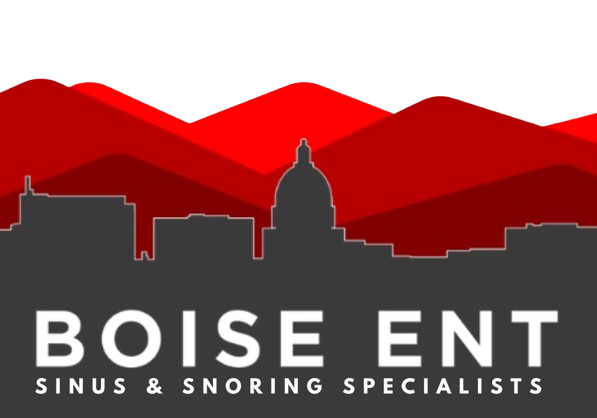What Is Swimmer’s Ear? Swimmer's ear is an infection of the outer ear canal caused…

Why Does My Nose Smell Bad?
Understanding the Causes and What You Can Do
Have you ever caught an unpleasant odor seemingly coming from your own nose and wondered what’s causing it? As an ENT specialist near you, I see this concern frequently, and while it may be embarrassing for some patients, it’s usually very treatable once we identify the source.
Common Causes of Bad Smells in the Nose
The most common culprit is sinus infections. When mucus gets trapped and infected, the bacteria produce foul odors. But infections aren’t the only reason. Other contributors include:
- Colds and Allergies: Even non-bacterial inflammation can alter mucus flow and cause smells.
- Poor Dental Hygiene: Tooth decay or untreated cavities, especially in upper teeth, can create odors that are sensed in the nasal cavity.
- Tobacco Use: Smoking causes chronic inflammation and dryness, which worsens nasal health.
- Tonsil Stones: These calcified accumulations in the tonsils emit a strong odor that may be perceived in the nose.
- Nasal Polyps and Deviated Septum: These structural blockages trap mucus and bacteria, setting the stage for persistent odor.
- Foreign Bodies (Especially in Children): Sometimes, it’s as simple — and serious — as a lodged object like a bead or piece of cotton that’s been festering.
How We Smell: A Quick Anatomy Lesson
Your sense of smell originates in a small area high in the nasal cavity where olfactory fibers meet the brain. These microscopic nerves detect odor molecules, send signals to the brain’s olfactory bulb, and then translate them into what you perceive as smell-pleasant or otherwise.
If those olfactory fibers become damaged-through viral infections like COVID-19, trauma, or even brain tumors-it can cause a distortion of smell (parosmia) or an unpleasant phantom smell (phantosmia).
When Is It Time to See a Doctor Near You?
If you’re dealing with a nasal odor that’s lasted more than 2-3 weeks, it’s time for a thorough evaluation. In my practice, I begin with a detailed history: When did it start? Is it constant or intermittent? What seems to trigger it? If you’re concerned about how to tell if a sinus infection has spread to the brain, this could be a critical part of the evaluation.
Next, I perform a physical and endoscopic examination using a tiny fiber-optic scope to inspect areas not visible to the naked eye. Imaging such as a CT scan may follow if necessary.
Effective Treatments for Bad Smells Near You
The right treatment depends on the root cause. Common solutions include:
- Nasal Saline Rinses: These are highly effective for clearing stagnant mucus and reducing odor.
- Antibiotics and Steroids: These are prescribed if there’s evidence of bacterial infection or significant inflammation.
- Antihistamines and Decongestants: Ideal for patients with allergies.
- Surgical Intervention: In rare cases involving polyps or anatomical obstructions, surgery may be necessary.
How to Get Rid of a Bad Smell in Your Nose Naturally At Home
In our high-desert climate, a humidifier can make a significant difference. Additional home tips include:
- Cleaning or replacing bedding and carpets (especially if you suffer from allergies).
- Using hypoallergenic pillows and minimizing indoor plants that could harbor mold or allergens.
- Practicing good dental and nasal hygiene.
A Case You Won’t Forget
I once treated a teenager with a persistent foul odor from one side of the nose. The source? A small toy lodged in his nostril for weeks. I’ve also seen adults with embedded cotton swab tips causing years of odor, and one case revealed a rare benign nasal tumor that had aggressively eroded internal structures. These examples underscore the importance of proper evaluation.
Final Thoughts
A bad smell in the nose isn’t just a nuisance — it can be a red flag. While it often resolves with simple home care, persistent or worsening symptoms deserve professional evaluation. Don’t ignore your nose; it’s trying to tell you something.
Ready to Breathe Easier? Contact Boise ENT Today
If you’re experiencing persistent bad smells in your nose, unusual nasal discharge, or changes in your sense of smell, don’t wait it out. These symptoms could be linked to infections, allergies, or more serious conditions that require expert evaluation. At Boise ENT, we specialize in identifying and treating the root causes of nasal and sinus issues with advanced diagnostic tools and personalized care. Schedule an appointment today and let our experienced team help you find relief and peace of mind.
Our Office:
Address: 8854 W Emerald St Ste 150, Boise, ID 83704
Phone Number: (208) 593-2346
Hours: Monday – Tuesday 8:30 AM – 5 PM
